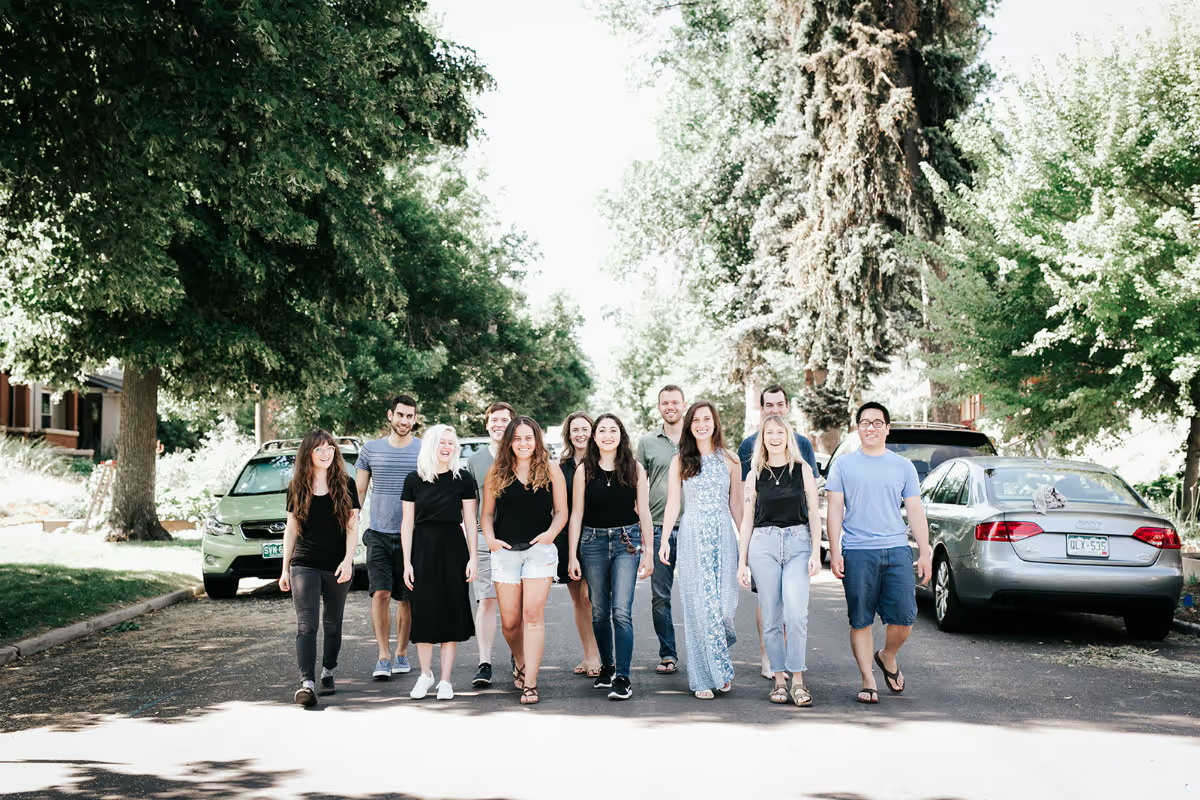Hi there friendly reader. I’m Carrie, the new content creator at User Interviews. My job is to make amazing stuff that you’ll love reading, listening to, watching, and experiencing. I joined the team last week. For my first post, I wanted to focus on a topic close to my heart, and how we get work done at User Interviews: remote teams.
Remote teams seem to be all the rage these days, but I wanted to see if that growth is as massive as it feels, being perhaps biased by having worked remote for close to two years. Given that we are huge believers in user feedback and qualitative data, I thought it’d be fun and useful to pull some quantitative stats on remote work, then weave in some qualitative data in the form of feedback from the team here at User Interviews.
Is remote work working well for employees and employers? What’s the ideal or typical mix of time in office versus time working remote? What do people like and not like about working remotely? We’ll take a look at this questions and more below.
Even If They Don’t Work Remotely Full Time, More People Are Going Remote
Studies show that 43% of people report working remotely at least some of the time. Whether it’s taking an occasional afternoon at home, an office practice of “Remote Fridays,” or even spending your entire day, every day, working remotely, almost half of the workforce is embracing remote in some way.
Employers are going remote too, in a survey by Upwork 38% of hiring managers predicted that their employees would work predominantly remotely in the next 10 years. Here at User Interviews, we’re a fully remote team. We’re joined by 35% of companies with remote team members with a fully remote workforce.
💻 Oh, and 90% of user researchers said they've worked exclusively remotely since the pandemic began. Read the stats on remote work amid COVID-19, the rise of remote user research tools, and more in ✨The State of User Research 2021 Report.✨
What People Love About Working Remotely
1. It Comes With A More Flexible Schedule
According to Buffer’s State of Remote Work 2018 study, there are some big benefits to working remotely. The number one benefit respondents chose was the flexible schedule, with 43% of people listing this as the biggest pro. This is also one of the things people want most out of a new job, with 67% of people expressing an interest in a flexible working schedule according to a study by PowWowNow.

Since we wrote about remote work and our team recently, I surveyed the newer members of the User Interviews team. I asked them about their favorite and least favorite things about remote work, and I’ll be sharing their insights throughout this post. I surveyed 7 members of our 17 person team. Of those seven people, six mentioned a flexible working environment as one of the things they loved about remote work.
I’m the most energetic in the morning, so I’m typically knocking things out starting at 7AM. If I had to get ready, drive into work, find parking, etc, I would lose that time that I’m the most productive.
~ Brittany Rutherford, Project Coordinator
My morning is not rushed. I can get coffee and take my dog for a walk and still start working by 9am.
~ Mike DeWolf, Senior Software Engineer
2. You Can Spend More Time With Family
The second best thing about working remotely? The ability to spend more time with family. 15% of respondents in the Buffer survey listed this as the biggest benefit of remote work. Our User Interviews team agreed, with two of the seven team members I asked listing it as a benefit. For a lot of us, our pets are a part of our families, and people love spending their days with their furry friends.

Working remotely allows me to hang out with my dogs all day. It allowed me to get a new puppy without worrying about our old-lady dog getting jealous.
~ Hana Moss, Project Coordinator
3. It’s Easier To Travel
My personal favorite thing about working remotely is that it allows me to travel and continue to grow my career. 12% of respondents in the Buffer survey agreed with me, and a survey by RemoteYear showed that 9% of respondents went remote to travel. I usually travel for longer periods of time, taking full advantage of the “work-from-anywhere” mentality. Right now I’m working on my Spanish skills from Quito, Ecuador, but in a few weeks I’ll travel back home to Atlanta, GA for the holidays and my workday will stay mostly the same.

Not everyone chooses to travel for long periods of time, but many people on the UI team have said remote work allows them to take longer vacations, spend more time with family, and just generally stress less about fitting travel into their work schedules. Two of the seven people I asked listed this as a benefit of remote work.
I’m able to have family visit, and go out of town, more freely. Since anywhere with wifi can be a workspace, I’m not bound by traditional weekends or holidays to see my loved ones. I can’t wait to spend a couple weeks home with my family for Christmas!
~ Brittany Rutherford, Project Coordinator
4. You Create Your Own Work Environment

11% of respondents in the Buffer survey said that their work environment was the best thing about working remotely. In a survey by FlexJobs, 76% of respondents said they avoid the office for important tasks. They listed things like distractions, office politics, and a more comfortable environment as their top reasons for getting things done somewhere other than the office. Your work environment can change your outlook on work. For many people, work environments can include everything from the physical place you work to the awesome people you work with. Our team echoed these thoughts, too. Three of the seven people I asked listed this as a benefit of remote work.
I love being able to change up my environment, it keeps me creative during the day.
~ Arleigh Atkinson, Software Engineer
What People Don’t Love So Much About Working Remotely
1. It Can Get Lonely
21% of people in the Buffer survey listed this as their biggest remote struggle. Working remotely can get pretty lonely if you let it. You have to be really deliberate about getting out there and interacting with people, since your home is also your office.

At User Interviews, we have tons of conversations about how to create an amazing company culture from our computers. We have daily watercoolers to just chat about whatever’s going on that day, or do a crossword, trivia, or Sporcle together. We also have offsite meetings twice a year so we can all hang out in person, which is always fun.

It’s really easy to fall into a social black hole if you’re not careful. You have to be a lot more purposeful about interacting with people, because you could seriously go all day without speaking to another soul. I think our team works hard to be available to each other, and I live for a couple private Slack channels with my buddies, but if you let yourself you could really just not interact. Most of my conversations during the day are through Slack or email, so there’s a missing component of just talking to people face to face. You can’t grab lunch with a coworker, or go out for drinks.
~ Brittany Rutherford, Project Coordinator
I don’t get to see my coworkers very often, which is sad :(
~ Arleigh Atkinson, Software Engineer
2. Collaborating and Communicating Can Be Difficult
21% of the Buffer respondents listed difficulties with collaboration and communication as their biggest remote work struggle. This can be so true, you have to be very deliberate about communicating with your co-workers when working remotely. Since most of the communication takes place over instant messenger or email, it can be difficult to ask those informal, “just wondering” questions. It can also be difficult to see what your co-workers are up to or how they’re doing during the day.
At User Interviews, we’re big fans of emojis, gifs, and anything else that makes work chats a little more fun and casual. We have dedicated Slack channels for random thoughts, fun trivia, and other more casual conversations. We also use HeyTaco! to reward each other for wins, big and small. All of these steps make communication a little easier, but it’s still something we have to make an effort to improve every day.

When you have questions, you really need to weigh whether or not they are worth messaging your colleagues about. It’s never as casual as just tapping them on the shoulder.
~ Hana Moss, Project Coordinator
My least favorite thing about working remotely is not always having immediate feedback on how I am doing, or how things are going for other team members. This is feedback I'd get immediately if we were in-person in an office.
~ Mike DeWolf, Senior Software Engineer
Asking ‘quick questions’ can be tough. Instead of just leaning over and asking a coworker, you have to write it in Slack or set up a call which can take a lot longer. So much of our communication is written. Tact and tone can get lost in instant messenger.
~ Sarah Jackson, Project Coordinator
Despite The Downsides, Most Remote Workers Want To Stay Remote
There are many benefits to working remotely, and it seems that the pros outweigh the cons. According to Buffer’s study, 90% of people who work remotely would like to do so for the rest of their careers. In addition, 94% of remote workers say they encourage others to work remotely.
Whether people choose to work remotely to achieve a more flexible work schedule, spend more time with their families, or just to be able to switch up their work environment, remote has a lot to offer employees. For me, the benefits are worth the hurdles. I love being able to work where I’m most productive and creative, switching between my home office and my favorite coffee shops. I also love being able to travel, learning new languages and new cultures while building a career I’m passionate about. I still have to take some extra measures to make sure I’m communicating with my coworkers effectively and not letting the loneliness of remote get to me. But, for me, the benefits heavily outweigh the difficulties and I plan on working remotely for the rest of my career.
Want to contribute to User Interviews content? Here’s how.
Want to join our remote team? Check out our open positions.




.avif)














